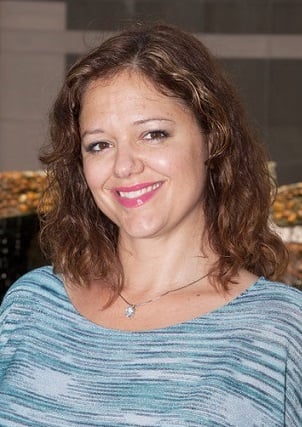 I've been thinking a lot about the attention economy this week as I prepare for budget season and brainstorm ways to increase CU Times' market share.
I've been thinking a lot about the attention economy this week as I prepare for budget season and brainstorm ways to increase CU Times' market share.
While the concept isn't new, each year it becomes easier to understand.
CU Times doesn't sell newspapers anymore. Our currency is measured in eyeballs.
Whether you realize it or not, your credit union's value is, too.
Back in the day when CU Times' reach was measured by the number of papers delivered, we were rich with attention. There were only a handful of credit union publications and more credit union boardrooms and executive suites that wanted a subscription. Our only attention competitors back then were work, the other credit union magazine and a friendly co-worker.
The internet kicked down those institutional walls. Now, rather than grabbing a paper copy of Credit Union Times during a workday lull, a credit union executive can instead give that attention to Facebook, the webcam at his or her child's daycare, an online shopping site, Pinterest or the live feed of a sporting event held in another city or halfway around the world.
Economies place value on what is scarce. Information in the internet age is not only abundant, there's an oversupply. Conversely, attention is an increasingly scarce resource.
It's easy to see what that means for CU Times, but what does it mean for credit unions?
Michael Goldhaber, one of the first economists to define the attention economy, nailed it back in 1997 when he made two important points.
First, organizations and their physical locations diminish in importance in an attention economy. When a member applies for a car loan using a mobile app, and the loan is funded without requiring a physical meeting with a loan officer, does that consumer care where the lender is located? Does it matter where the consumer is located? Not at all.
Increasingly, organizational barriers will be defined less by the buildings in which employees work and more by the networks of attention built by employees. More on that later.
Goldhaber's second point is how attention is monetized. When you have a person's full attention, you can get him or her to perform physical acts.
The ALS Ice Bucket Challenge is a great example. Donating to ALS research has always been an honorable cause, one that is worthy of attention. Then famous and everyday people began posting videos of themselves dumping a bucket of ice water over their heads.
The viral promotion capitalized on a key component of the attention economy: Originality. Even in this era of “look at me” entertainment, where both the famous and common will do seemingly anything to get attention, this spectacle was something new. And it attracted attention.
The promotion also leveraged peer pressure by including challenges that forced others to participate. Those challenged could either play along or risk negative attention by failing to engage in self-deprecating behavior.
God help us.
But joking about the downfall of civilization aside, the Ice Bucket Challenge underscores the attention economy's value shift from institutions to individuals.
I read once that Dale Carnegie changed the world forever (or ruined it, depending on your view) when he released How to Win Friends and Influence People in 1935. Before the book became popular, people were judged by their ability to work hard and deliver tangible value. Ever since, personality has increased in importance.
In a pure attention economy, personality is all that matters.
That means rather than compete on rates or service, credit unions must capture attention by using personality. That personality doesn't come from the institution itself, but from the people working there. Executives at the top attract attention to a company, but more and more, it's the front line staffers who will be called upon to attract attention so they can then convince their audience to perform a physical action.
Like it or not, this means your employees must use social media to develop circles of influence and position themselves as financial services rock stars. Not as a trusted, valued employee of XYZ Credit Union offering better rates and great service, but an original, engaging personality. Good hiring decisions will become more important than ever, and personality could soon eclipse traditional skills like processing and accuracy, if it hasn't already.
Heather Anderson is executive editor of CU Times. She can be reached at [email protected].
© 2025 ALM Global, LLC, All Rights Reserved. Request academic re-use from www.copyright.com. All other uses, submit a request to [email protected]. For more information visit Asset & Logo Licensing.







